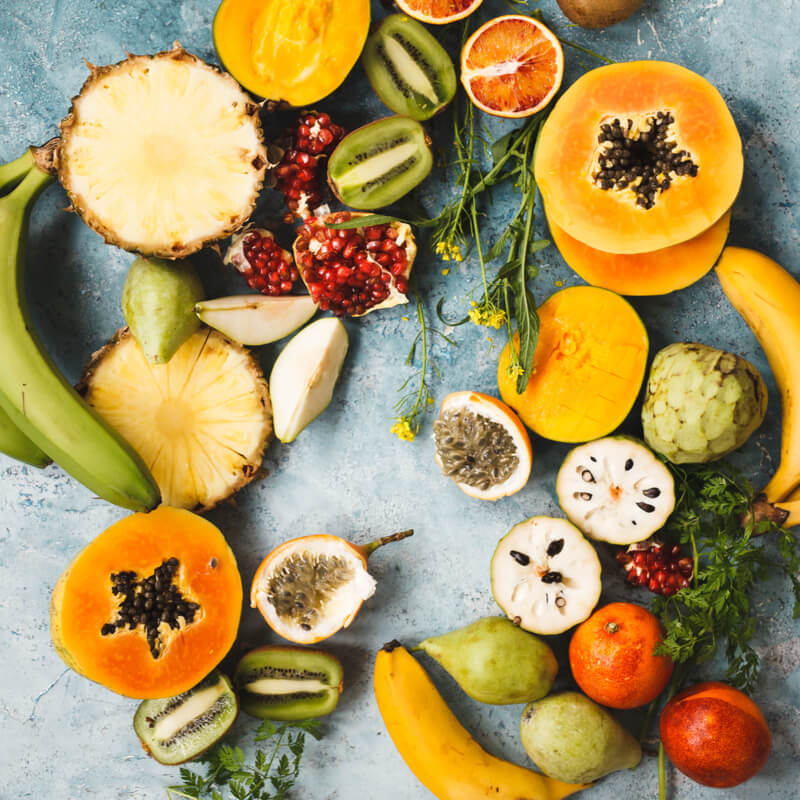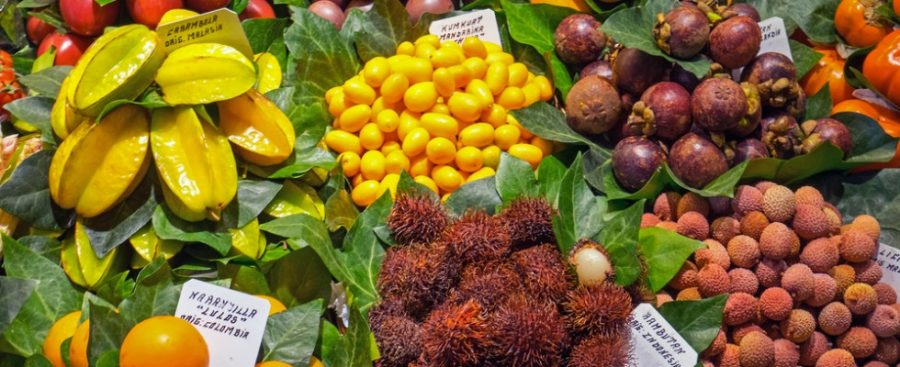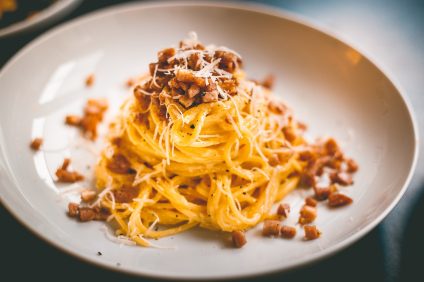Queen of feast days, she takes a long journey to land on our table but is rich in beneficial properties for the body
La esotic fruit now we find it almost all year round on supermarket counters. It is usually put on the table on special occasions because in addition to representing a delicacy, it brings unusual aromas and gives a lively note of color. But of the esotic fruit the are also worthy of attention nutritional properties.

What are the nutritional properties that characterize exotic fruit?
Avocado: has a calorific value of about 220 calories per 100 grams. However, it contains Omega 3, so it provides "good" fatty acids and plays a cardiovascular protection. It also has beneficial effects on mood and, thanks to the presence of vitamins A and E, slows down aging.
It also boasts anticancer properties. However, the mineral content such as potassium, magnesium and phosphorus makes it unsuitable for those suffering from renal insufficiency.
Papaya: has 43 calories per 100 grams and a high percentage of water. It is perfect for keeping the line. Contains vitamins A, C, K, folic acid and flavonoids. Its content plays a role in the prevention of colon cancer.
Mango: it is the prince of exotic fruits as regards anti-aging properties, thanks to its richness in potassium, magnesium, calcium, fiber and an antioxidant substance, lupeol. It has only 60 calories per 100 grams and can inhibit fat absorption but not "burn" it. However, it is very sweet and therefore not suitable for those suffering from diabetes. Excessive consumption can cause intestinal problems and dysentery.
Pineapple: the fame of the "fat burner" is probably due to the fact that, after eating it, more liquids are eliminated, with a slimming effect. Although its calories are low, 40 per 100 grams, it is abundant in fiber, iodine, manganese, calcium, phosphorus and potassium.
Passion fruit: known as "passion fruit", provides 97 calories per 100 grams. Contains beta-carotene and Omega 6. It is beneficial for the health of the skin, heart and gastrointestinal system. Studies have shown that it would be suitable for people with diabetes.
Lychee: provides 66 calories per 100 grams. It has a good digestive and anti-inflammatory power. The presence of vitamin C is higher than that of citrus fruits.
Pitaya: also called "dragon fruit ", boasts a good amount of vitamins, fiber and minerals. Provides 36 calories per 100 grams. It is also energetic, helps fight flu attacks and protects the skin.
durian: less known than other types of exotic fruit and with more calories (147 per 100 grams). It has a thorny skin and a very strong smell and taste, but it is said to have aphrodisiac powers .. Seeing is believing !!
Do you want to discover the beneficial properties of exotic fruit?
Click on the information link below.
http://www.humanitasalute.it/dieta-e-alimentazione/4152-frutta-esotica-che-passione/









